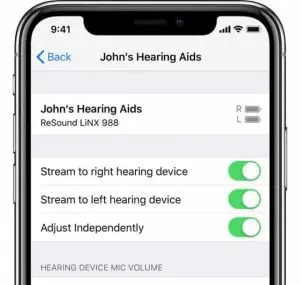Why is your brain well-being so important?
When people refer to “brain health,” they are typically discussing the overall well-being and optimal functioning of the brain. Brain health encompasses various factors that contribute to the maintenance and promotion of cognitive abilities, mental well-being, and overall brain performance.
Here are some key aspects associated with brain health:
1. Cognitive Function:
Brain health involves preserving and enhancing cognitive abilities such as memory, attention, problem-solving, reasoning, language skills, and learning capacity. Maintaining good brain health promotes mental sharpness and the ability to effectively process and recall information.
2. Mental Well-being:
Emotional and psychological well-being are vital components of brain health. It involves maintaining a positive mindset, managing stress, reducing anxiety and depression, and fostering resilience. Taking care of one’s mental health positively impacts overall brain function.
3. Neuroplasticity:
The brain’s capacity to adapt, change, and reorganize itself is known as neuroplasticity. It refers to the brain’s ability to form new neural connections, strengthen existing ones, and modify its structure in response to experiences, learning, and environmental factors. Maintaining brain health supports neuroplasticity and promotes lifelong learning and cognitive flexibility.
4. Lifestyle Factors:
Certain lifestyle choices significantly influence brain health. Engaging in regular physical exercise, consuming a nutritious diet rich in antioxidants and omega-3 fatty acids, getting sufficient sleep, managing chronic conditions like diabetes and hypertension, and avoiding harmful substances such as excessive alcohol or drugs contribute to optimal brain health.
5. Social Engagement:
Social connections and meaningful relationships have a positive impact on brain health. Maintaining an active social life, engaging in social activities, and fostering interpersonal connections can help preserve cognitive function, reduce the risk of cognitive decline, and enhance overall well-being.
6. Brain Disorders and Diseases:
Brain health also involves understanding and addressing conditions that affect the brain’s function, such as neurodegenerative diseases (e.g., Alzheimer’s disease, Parkinson’s disease), stroke, traumatic brain injury, or mental health disorders. Early detection, intervention, and appropriate treatment are crucial for managing these conditions and maintaining overall brain health.
By prioritizing brain health through lifestyle choices, mental well-being, cognitive stimulation, and preventive measures, you can optimize brain function, enhance their quality of life, and reduce the risk of cognitive decline and neurological disorders as they age.
Do Hearing aids really help your brain health?
Yes, it is widely recognized that hearing aids can positively impact brain health. Listed below we share some key ways in which hearing aids contribute to brain health.
1. Cognitive Stimulation:
Hearing aids help individuals with hearing loss regain access to a broader range of sounds, including speech and environmental sounds. By improving auditory input, hearing aids provide consistent stimulation to the brain, keeping it engaged and active. This ongoing stimulation is crucial for maintaining cognitive function and preventing cognitive decline.
2. Speech Comprehension:
Hearing loss can make it challenging to understand speech, leading to cognitive strain and increased effort to follow conversations. By amplifying and clarifying speech sounds, hearing aids enhance speech comprehension. This reduces the cognitive load on the brain, allowing individuals to understand conversations more effortlessly and accurately.
3. Social Engagement:
Untreated hearing loss often leads to social isolation and withdrawal from social activities. However, social engagement is essential for brain health. By improving hearing, hearing aids enable individuals to actively participate in social interactions, maintain social connections, and stimulate the brain through communication, which can positively impact cognitive abilities and mental well-being.
4. Sensory Input:
The brain relies on accurate sensory input, including auditory input, to process and interpret the world around us. When hearing loss is untreated, the brain receives incomplete or distorted auditory signals, which can lead to decreased brain function over time. By providing the brain with clearer and more accurate auditory information, hearing aids help maintain proper sensory input, supporting overall brain health.
5. Prevention of Auditory Deprivation:
Auditory deprivation refers to the concept that prolonged hearing loss can lead to changes in the auditory pathways of the brain, reducing its ability to process sound effectively. By addressing hearing loss with hearing aids, auditory deprivation can be prevented or minimized, allowing the brain to continue receiving and processing auditory stimuli, thereby preserving its function.
It is important to note that addressing hearing loss with hearing aids or over the counter hearing aids is just one aspect of maintaining brain health. Adopting a holistic approach that includes other factors like physical exercise, mental stimulation, a healthy diet, and social engagement is beneficial for overall brain health.






